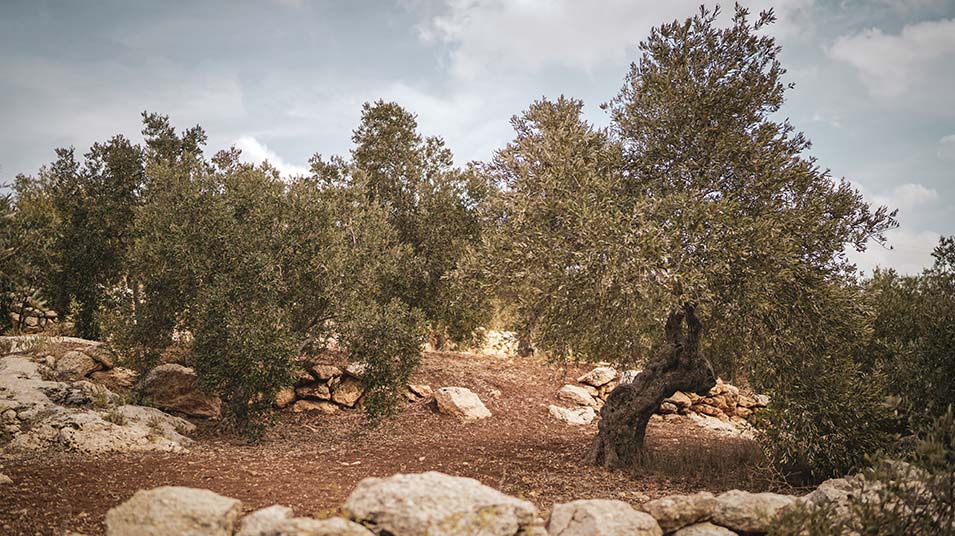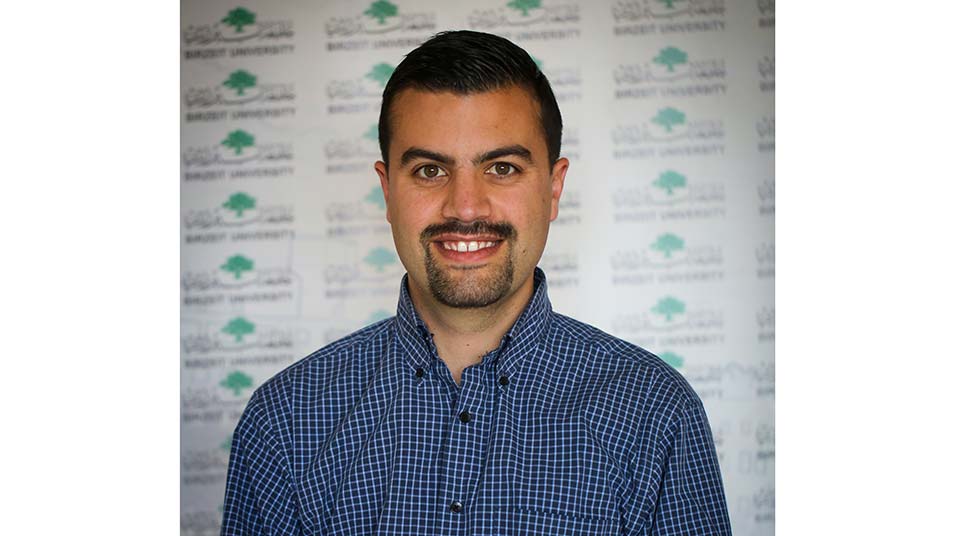"Social perennial vision”: Dr. Omar Tesdell’s plan for sustainable agriculture in the 21st century
Dr. Omar Tesdell, an associate professor of geography at Birzeit University, has co-authored a research paper arguing for a socially conscious sustainable agriculture achieved through farming perennial grains, establishing ethical and just relations between individuals, and working with, not against, the land.
The paper, co-authored with Dr. Aubrey Krug, director of ecosphere studies at the Land Institute in Kansas, USA, was published in the U.K.-based refereed journal Plants, People, Planet. In it, the authors argue that promoting sustainable agriculture is inextricably linked to the deconstruction of cultural notions through which annual disturbance-based grain agriculture, whose continued use damages the ecosphere over the long-run, is seen as a natural part of life and an indispensable source of food.
The view that the current form of agriculture is essential to modern life and food production has been intertwined throughout history with three distinct systems of relations that, through their subscribers, helped give rise to disturbance-based annual grain agriculture. The systems, agrilogistics, misogyny, and settler colonialism, are by definition unjust and have incorporated varieties of annual grain agriculture as methods of subjugating and disenfranchising certain segments of the community.
The authors, reviewing the history of annual grain agriculture as a cultural institution, argue that such an agrarian practice is not sustainable and does not lead to good human life. In its stead, the authors submit, is sustainable agriculture based on perennial grain, which would provide the food required by the modern world while also preserving the ecosphere in the long-term.
The sustainable agriculture proposed by the authors is socially conscious and is based on three notions: sufficiency, not limitless production and resource extraction; responsibility, in that it is the responsibility of humans to devote time and efforts in the care of others, regardless of gender or other characteristics, in addition to animals and the environment; and co-creativity, which contrasts with settler colonialism and refers to the ability of people to create and produce using the land instead of destroying it to build something anew.
As a case study on their “socially perennial vision,” the authors report on the Makaneyyat project, which is based in Palestine and, through community engagement, research, and education, investigates and re-imagines the relationship between agriculture, the environment, and humans.
The team is identifying and preserving wild species of plants across the valleys and hills of the country, such as Hordeum bulbosum, which is researched around the world as a candidate for a perennial grain. They are also collecting and disseminating agricultural knowledge produced in labs and published in peer-reviewed journals as well as the technical knowledge produced and preserved by local agricultural communities around Palestine, thus making sure that information is unbiased and, more importantly, available to everyone who could make use of it.
The Makaneyyat team sets an example of a socially conscious agriculture that focuses on perennial grain cultivation, values human labor, and promotes sustainable relations with the environment. Such a framework, conclude the authors, could be built upon and applied in a variety of countries and areas around the world, resulting in a “future where human communities are sustainably and equitably nourished by diverse, perennial grain agricultures.”








